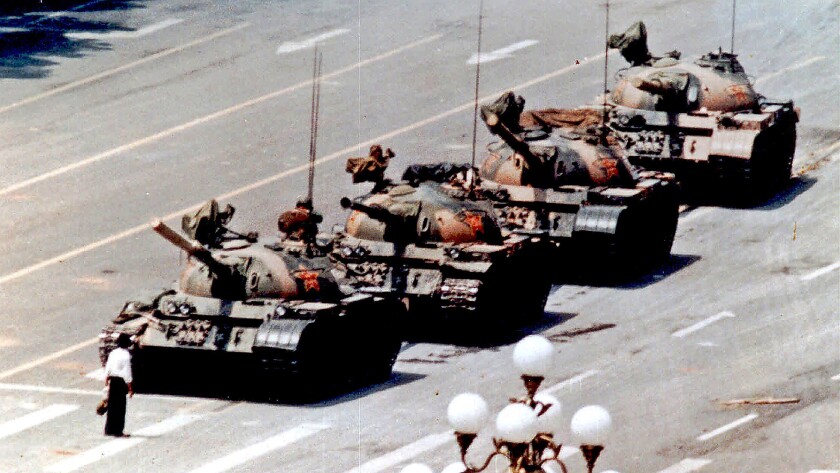 People from China will often ask me, “Why are Westerners like you so obsessed with what happened in Beijing in 1989?”
People from China will often ask me, “Why are Westerners like you so obsessed with what happened in Beijing in 1989?”
I’ve never had a succinct answer to this question — until now. Next time, I’ll say, “I may be obsessed with 1989, but China’s top leaders are even more obsessed with it.” The events of that time still reverberate in Beijing’s response to the protests racking Hong Kong now.
What scared the government most in 1989 was not students gathering in Tiananmen Square. It was members of many social groups turning out to support those youths as multi-class protests erupted in other cities, too. China’s leaders were equally alarmed by protests that spread across class lines to topple Communist rule in places like East Germany, Czechoslovakia and Romania.
Haunted by those epochal events, China’s top leaders have used quick and brutal methods to crush any new movement that strikes them as having the potential to link up people of varied classes in varied locales. This explains the merciless moves against Falun Gong in 1999.
A concern with avoiding another 1989 has also influenced China’s top leaders, from Deng Xiaoping to Xi Jinping, in other ways. It has led them to allow some single issue, single locale protests so that people can let off steam. At the same time, it has caused them to increase their efforts to co-opt, control and distract groups, such as students at leading universities, who played central roles in the Tiananmen protests.
It’s interesting to me that many of those asking about the West’s Tiananmen obsession are students who point out that they weren’t even alive then. Many tell me they have seen the famous photograph of the Tank Man, even though it is banned behind the Great Firewall, and they know that soldiers killed civilians near Tiananmen Square on June 4, 1989 — though they avoid using the word “massacre” to characterize the bloodshed.
What puzzles them is that the Tank Man image should loom so large in our imagination, when they believe there are other images — of fast trains, skyscrapers, the Beijing Games, etc. — that better reflect China’s exciting trajectory. And they find it curious that Western commentators bring up Tiananmen whenever new protests break out. That’s certainly been true this year, with the Western press filled with speculation over whether the Hong Kong protests will result in a Tiananmen-style crackdown by Beijing.
While there’s abundant evidence that the Chinese government is absolutely willing to use vicious means to suppress dissent — as with the horrific human rights abuses directed at the Uighurs in Xinjiang — it has also been careful to avoid any images that might recall 1989.
Xi, like his predecessors, does not want the international press to be on the scene when a large number of people are killed. It does not want a new iconic photograph capturing its brutality, 30 years after Tank Man. Many people have been injured badly and arrested in Hong Kong, but there have been few deaths. And in Xinjiang, the authorities have kept the enormous suffering there out of sight.
Another telling sign of the Chinese leaders’ obsession with 1989 is their critical attitude toward Mikhail Gorbachev, whose decisions contributed to the dissolution of the Soviet Union. Like his predecessors, Xi does not want to be seen as China’s Gorbachev, the man on whose watch a Communist Party-run empire imploded — and that means proving he has the will to put down any movement that challenges his authority and that of the Communist Party.
History never repeats itself. There are always novel features that keep new events from unfolding exactly like previous ones.
It matters, though, that people often imagine that the past could repeat itself and sometimes actively try to increase or decrease the chance of this happening. When historians of the future tell the story of 2019, they would do well to focus on two things: how the many protests around the world this year differ from those of 1989 and how fear of the revolutions born in that era haunt some contemporary autocrats.
Jeffrey Wasserstrom is a professor of history at UC Irvine and author, most recently, of the forthcoming “Vigil: Hong Kong on the Brink.”
No comments:
Post a Comment